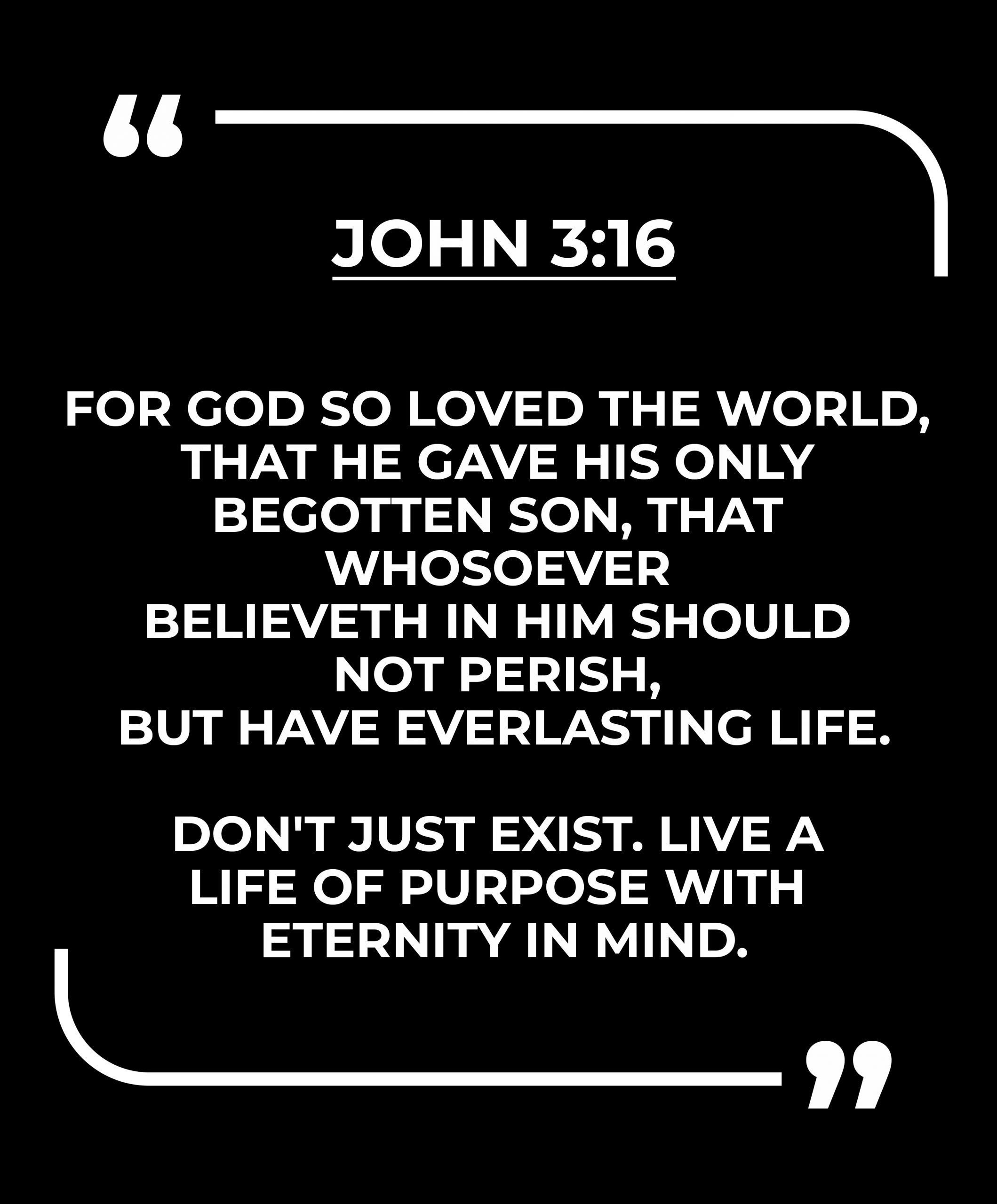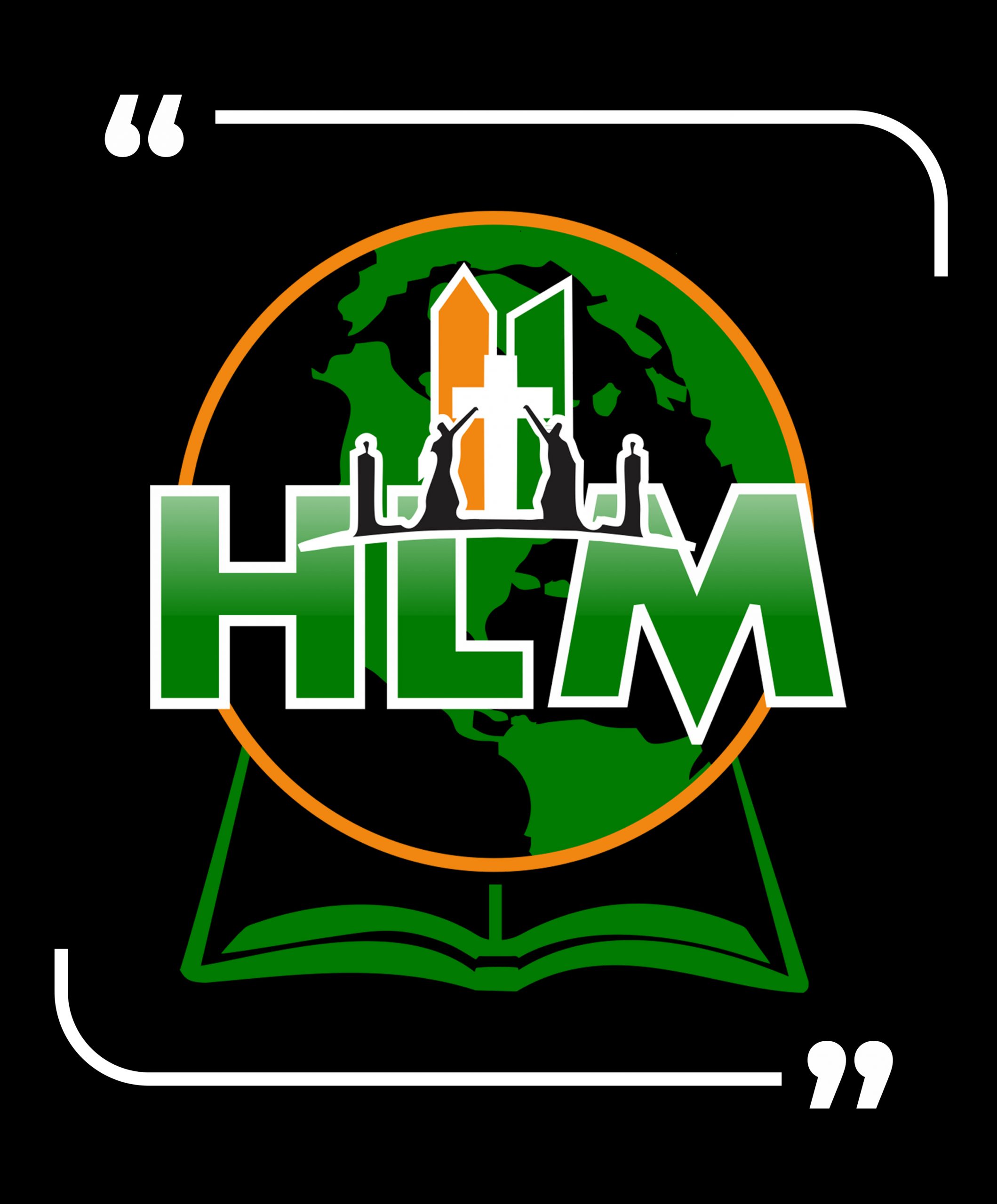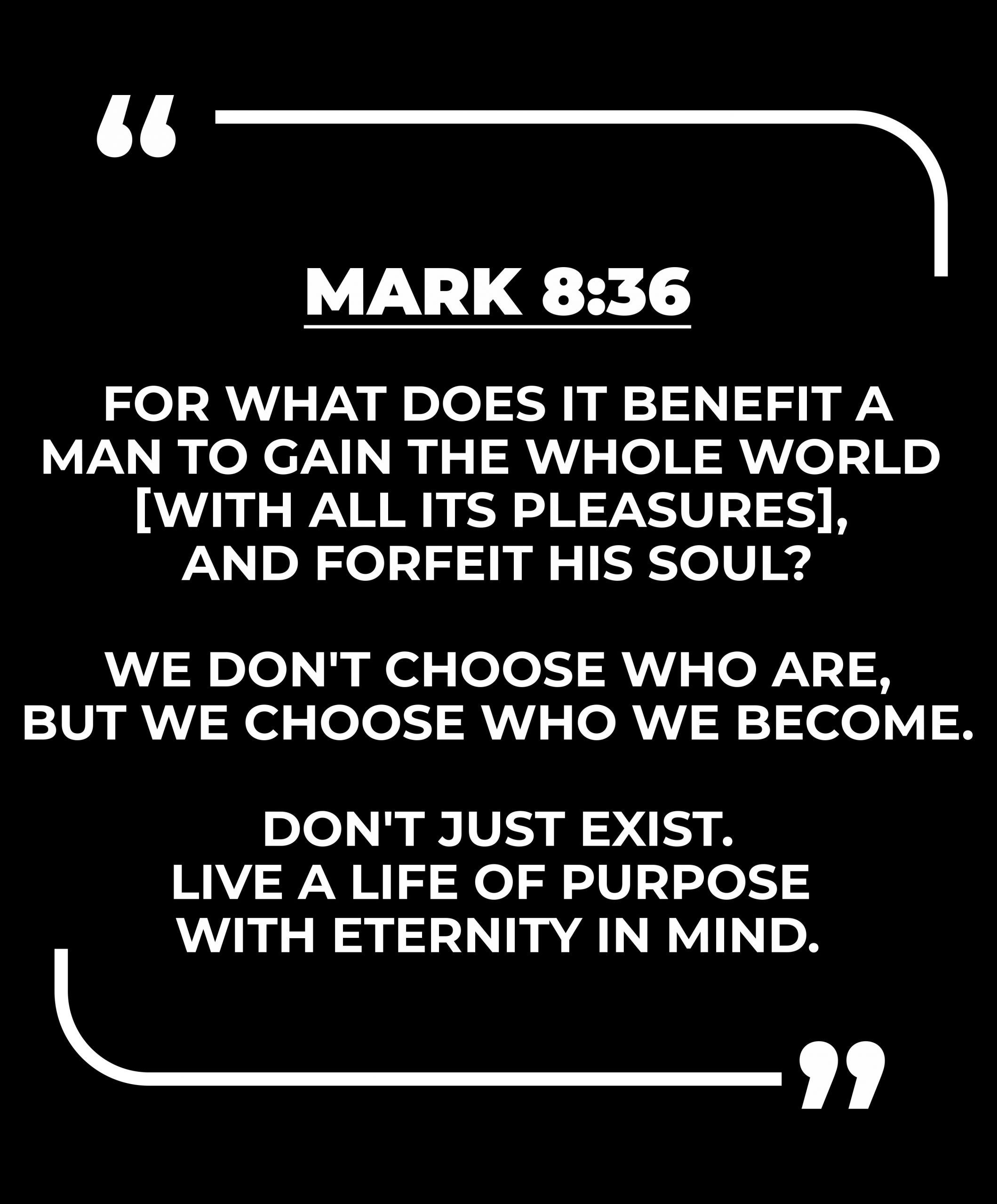VISION & MISSION
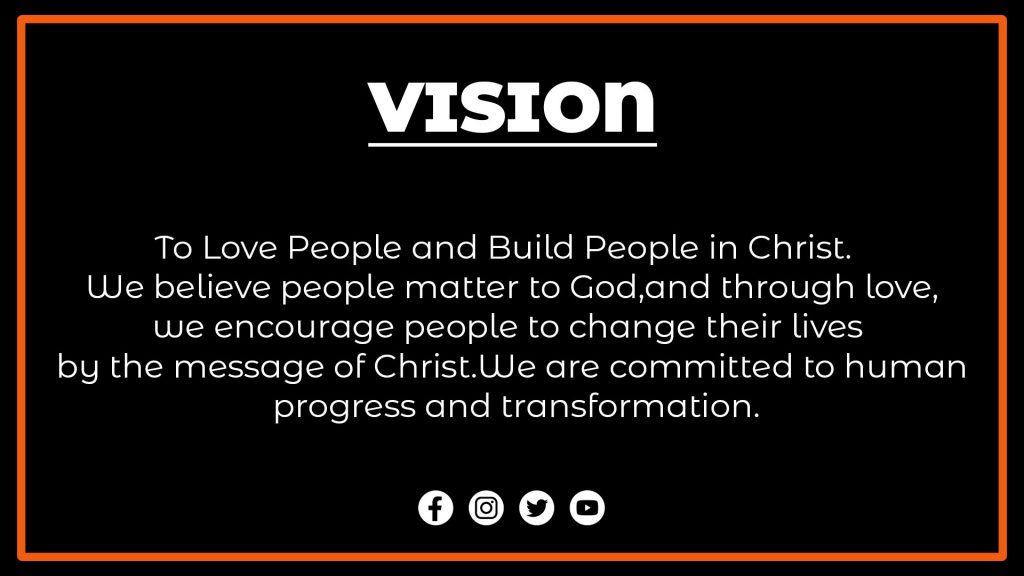
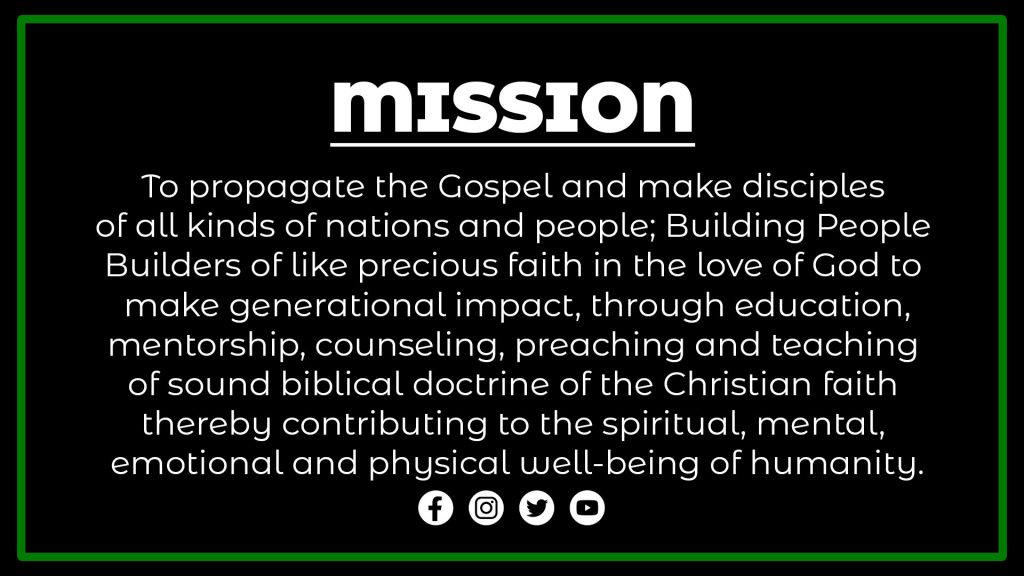
STATEMENT OF FUNDAMENTAL TRUTHS
1. The scriptures inspired. The Bible is the inspired Word of God, a revelation from God to man, the infallible rule of faith and conduct, and is superior to conscience and reason, but not contrary to reason (2 Timothy 3:15-16,1Peter 2:2).
2. The one true God. The one true God has revealed himself as the eternally self-existent, self-revealed “I AM” and has further revealed Himself as embodying the principles of relationship and association, i.e., Father, Son, and Holy Spirit (Deuteronomy 6:4, Mark 12:29, Isaiah 43:10, Isaiah 11, Matthew 28:19).
3. Man, his fall and redemption. Man was created good and upright; for God said, “Let Us make man in our image, after our likeness.” But man, by voluntary transgression, fell and his only hope of redemption is in Jesus Christ the Son of God (Genesis 1:26-31, Genesis 3:1-7, Romans 5:12-21).
4. The salvation of man. [a] Conditions of Salvation. The grace of God which brings salvation, has appeared to all men, through the preaching of repentance toward God and faith toward the Lord Jesus Christ; the washing of regeneration and the renewing of the Holy Spirit, and being justified by hope of eternal life (Titus 2:11, Romans 10:13-15, Luke 24:47, Titus 3:5-7).
[b] Evidence of salvation. The inward evidence to the believer of his salvation is the direct witness of the spirit (Romans 8:16). The outward evidence to all men is a life of righteousness and true holiness.
5. Baptism in water. The ordinance of baptism by a burial with Christ should be observed as commanded in the scriptures by all who have repented and believed in Christ as Savior and Lord. In so doing, they have their body washed in pure water as an outward symbol of cleansing, while their heart has already been sprinkled with the blood of Christ as in inner cleansing. They declare to the world that they have died with Jesus and been raised with Him to walk in newness of life (Matthew 28:19, Acts 10:47, Acts 48, Romans 6:4, Acts 20:21, Hebrews 10:22).
6. The Lord’s Supper. The Lord’s Supper, consisting of the elements, bread and the fruit of the vine, is the symbol expressing our sharing the divine nature of our Lord Jesus Christ (2 Peter 1:4), a memorial of His suffering and death (1 Corinthians 11:26), a prophecy of His second coming (1 Corinthians 11:26), and is enjoined on all believers until He comes.
7. Regeneration. All people who turn from their sins and put their faith in the finished work of Jesus Christ receive a new birth by which their life is regenerated by the power of God’s Holy Spirit (John 3:3-6, Titus 3:5). From that time forth the regenerated person has God’s Holy Spirit dwelling within them enabling them to live a holy life (1 Corinthians 3:16, 2 Peter 1:3-4). Also, giving them power to be witnesses for Jesus Christ (Acts 1:8).
8. The promise of the Father. All believers are entitled to the promise of the Father and the baptism in the Holy Spirit according to the command of our Lord Jesus Christ. This was the normal experience in the early Christian Church. With it comes a deeper spiritual life and service, the bestowment of the gifts and their uses in the work of the ministry (Luke 24:49, Acts 1:4, 1 Corinthians 12:1-31). This wonderful experience is distinct from and subsequent to the experience of the new birth (Acts 10:44-46, Acts 11:14-16, Acts 15:7-9).
9. Sanctification. The scriptures teach a life of holiness without which no man shall see the Lord. By the power of the Holy Spirit, we are able to obey the command: “Be holy, for I am holy.” Sanctification is the will of God for all believers, and should be pursued by walking in obedience to God’s Holy Spirit. Sanctification is experienced in basically three ways: [a] Instant or positional sanctification. This is what happens to every person who puts their trust in the finished work of the Lord Jesus Christ. When we are saved through faith in Jesus, we are sanctified in the eyes of God through the blood of the cross. As God the Father looks at us, He sees the holiness of Jesus, which is imputed to us, and does not see our sin (Hebrews 10:10, Hebrews 14).
[b] Progressive or practical sanctification. This is the process by which we strive to live on a day to day basis by considering ourselves dead to sin and alive to God in holy living through the power of God’s divine nature within our lives (Romans 6; Philippians 2:12, Philippians 2:13, 2 Peter 1:3, 2 Peter 1:4).
[c] Final sanctification. This is when we are totally set free from the presence of sin within our life after seeing Jesus our Lord and being made like Him because of seeing Him as He really is in all His glory (1 John 3:2).
10. The body of Christ. The church is the body of Christ, the habitation of God through the Spirit with divine appointments for the fulfillment of her Great Commission. Each believer, born of the spirit, is an integral part of the the body of Christ, which is written in heaven (Ephesians 1:22, Ephesians 1:23, Ephesians 2:22, Hebrews 12:23).
11. The ministry and evangelism. A divinely called and scripturally ordained ministry has been provided by our Lord for the evangelization of the world and the edifying of the body of Christ (Mark 16:15-20, Ephesians 4:11-13).
12. Divine healing. Deliverance from sickness is provided for us in the atonement, and is the privilege of all believers (Isaiah 53:4, Isaiah 53:5, Matthew 8:16, Matthew 8:17).
13. The blessed hope. The resurrection of those who have fallen asleep in Christ and their translation, together with those who are alive and remain unto the coming of the Lord, is the imminent and blessed hope of the Church. (1 Thessalonians 4:16, 1 Thessalonians 4:17, Titus 2:12, 1 Corinthians 15:51, Romans 8:23).
14. The millennial reign of Jesus. The revelation of the Lord Jesus Christ from heaven, the salvation of national Israel, and the millennial reign of Christ on earth are the scriptural promise and the world’s hope (2 Thessalonians 1:17, Revelation 19:11-14, Romans 11:26, Romans 11:27, Revelation 20:1-7).
15. The lake of fire. The devil and his angels, the beast and the false prophet, and whoever not found written in the Book of Life, shall be consigned to everlasting punishment in the lake, which burns with fire and brimstone, which is the second death (Revelation 19:20, Revelation 20:10-15).

